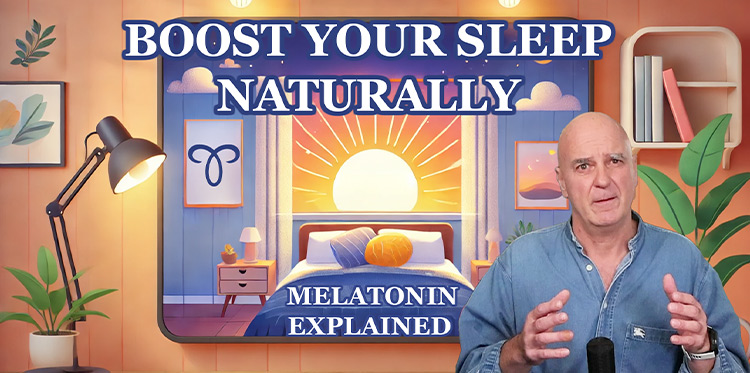Melatonin Explained: Simple hacks to boost your sleep naturally

At Devon Duvets, we’re dedicated to helping you achieve a great night’s sleep. Today, we’re exploring melatonin, your body’s natural sleep hormone, and how small changes in your routine can enhance its effects. From understanding how melatonin works to discovering natural ways to boost it, these simple tips will help you optimise your rest and wake up feeling refreshed every day.
What is melatonin and why does it matter?
Melatonin is a hormone produced by the pineal gland in your brain, and which plays a vital role in regulating your sleep-wake cycle. As evening approaches and light fades, melatonin production naturally increases, preparing your body for rest. This process aligns with the body’s internal clock, telling you it’s time to wind down for the night. However, if you’re exposed to artificial light in the evening - especially the blue light from screens - melatonin production can be disrupted, making it harder to fall asleep.
Simple tip: To encourage natural melatonin production, make your bedroom as dark as possible, and start dimming lights about an hour before bed. Regularity is key, so try to establish a consistent routine around this. By aligning with natural light and dark cycles, you’re helping your body’s natural rhythms work optimally, paving the way for restful nights.
Did you know that certain foods can support melatonin naturally?
Another surprising way to support melatonin is through food. Certain foods, such as cherries, bananas, and almonds contain small amounts of melatonin, as well as other nutrients that help your body produce it. So, if you’re feeling peckish before bed, a small snack with one of these foods might give your sleep a natural boost.
Relaxation techniques to enhance melatonin production
A calming pre-sleep routine can do wonders for melatonin production. One of the simplest ways to unwind is with a breathing exercise. Try this: breathe in for four counts, hold for four, and exhale for four. Repeat this for a few minutes to calm your mind and lower stress levels. Lowering stress before bed reduces cortisol (the stress hormone) in your body, giving melatonin a chance to work its magic.
Incorporating gentle activities like stretching or reading in low light can also ease you into relaxation mode, helping you transition into restful sleep.
A morning routine for a bright start
When morning arrives, natural light is key to helping your body transition out of sleep. Exposure to sunlight stops melatonin production and stimulates hormones that promote wakefulness, such as cortisol. Stepping outside for a few minutes or opening your curtains wide to let in as much natural light as possible can make a world of difference. Even on grey days, the outdoor light is far stronger than indoor lighting and helps reset your internal clock, boosting your energy and mood for the day ahead.
If stepping outside isn’t possible, turning on bright lights indoors can also help send the right signals to your body. This tip is especially helpful if you’re adjusting to a new routine or overcoming disrupted sleep patterns. By aligning with your body’s natural rhythms, mornings can feel more energised, making it easier to wake up and seize the day.
A final word on melatonin…
Melatonin is your body’s natural sleep aid, helping you wind down at night and supporting your internal clock. Creating a calm, dark environment in the evening and embracing bright light in the morning are simple, powerful ways to maintain this balance. So why not give these tips a try and see how your sleep improves?
Here’s to restful nights and energised mornings! For more insights on sleep and well-being, be sure to explore our blogs and check out our podcasts. For example, if you’re struggling with waking up at 3 a.m., have a look at our “Waking Up at 3 a.m.” podcast and blog for practical tips to help you fall back asleep naturally.


